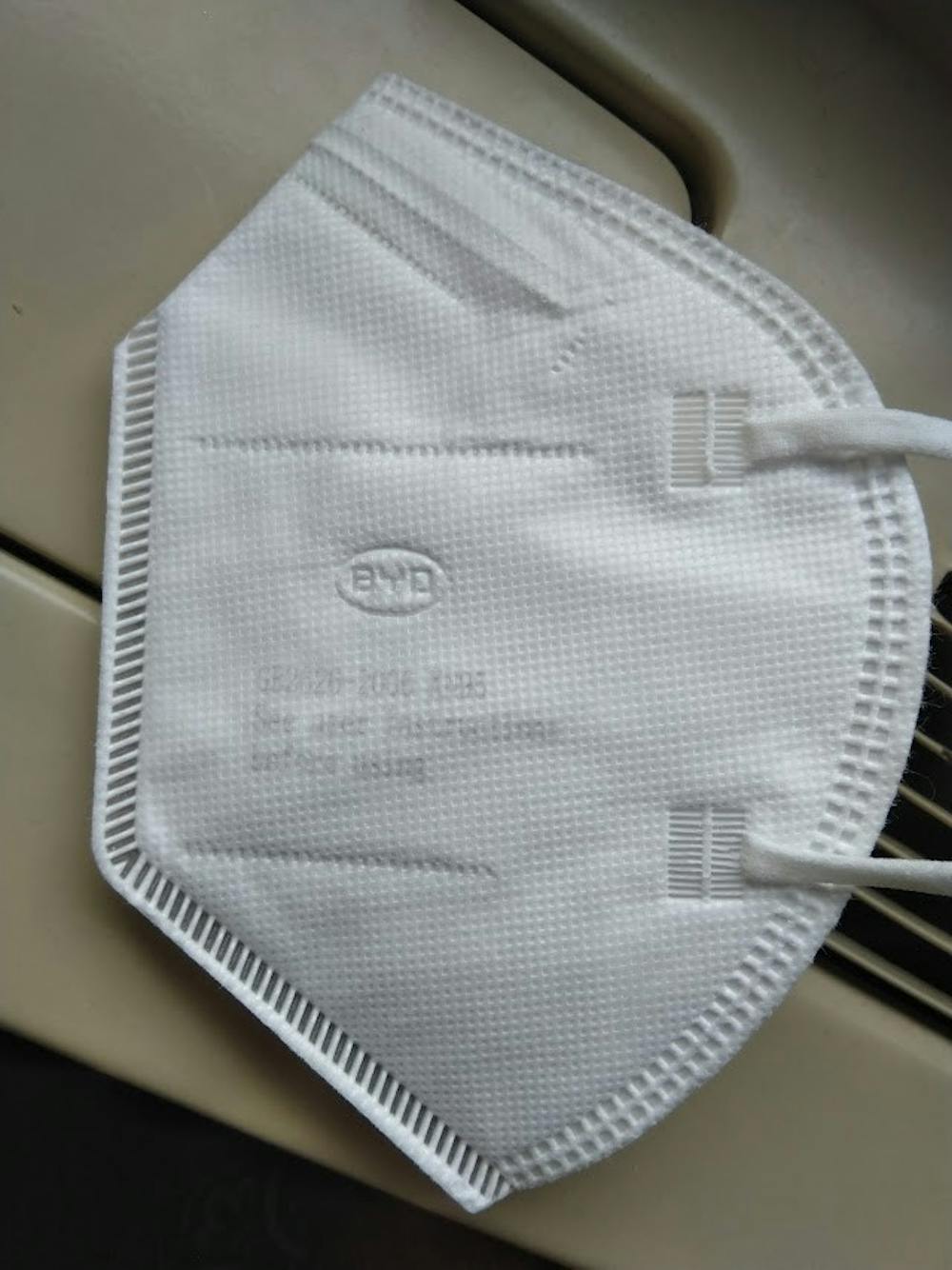American University is now distributing authentic KN95 masks after a Feb. 4 investigation published by The Eagle found that the University’s first batch did not meet authentication standards.
The new KN95 masks, which have been distributed since Feb. 7, are labeled with the code “GB2626-2006,” which indicates that the manufacturer constructed the mask, according to current Chinese respirator standards. The mask is legitimate as long as the expiration date has not passed.
Dr. Amesh Adalja, an infectious disease expert at Johns Hopkins University, confirmed that the current masks appear to be authentic based on photos provided by The Eagle. The University inspected the new batch of masks before distributing them, AU spokesperson Matthew Bennet said in a Feb. 5 interview.
W.B. Mason, an office supply company and AU’s mask vendor, did not respond to multiple requests for comment by phone and email.
Updated mask distribution limit
The University updated the distribution of KN95 masks Feb. 7 to allow two masks per two weeks for community members, University spokesperson Elizabeth Deal told The Eagle in an email.
KN95 masks are available to the community at five distribution sites, according to a Jan. 28 email from President Sylvia Burwell. Although Burwell said that students must show their AU ID, the email did not specify a limit on the number of masks permitted.
“Please keep in mind that these masks are reusable, and we remain mindful of our sustainability goals, so we ask the AU community to respect the limit so there are enough masks for everyone in our community,” Deal wrote to The Eagle Feb 2.
At the Mary Graydon Center front desk where she works as an operations assistant, Gifty Boanoh, a sophomore in the School of Public Affairs, helps with the KN95 mask distribution. Boanoh said that assistants at the distribution sites record a student’s name when they pick up masks. If a student requests an additional mask during the week 一 for example if their first one breaks 一 Boanoh said assistants write a note documenting the reason for the additional distribution.
“We use [the records] for numbers/data for the University, but no one is being turned away if they came earlier in the week,” Boanoh wrote in an email to The Eagle.
Students have expressed concerns over how long a KN95 or N95 mask is safe to reuse. CDC guidance advises that KN95 masks be used no more than five times and that users allow for a few days between each reuse to allow the virus to die.
Stevie Early, a sophomore in the School of Public Affairs, said she thinks the University should distribute more than one mask per week, citing health and safety concerns.
“It’s well known that you can’t reuse the mask [for extended periods of time],” Early said.
AU spokesperson Matthew Bennett told The Eagle in a Feb. 5 interview that despite being inauthentic, the counterfeit KN95 masks were “superior to” cloth masks because of the snug fit around the mouth and nose.
Margaret Curley, a sophomore in the College of Arts and Sciences, said she wishes the University had validated students’ concerns regarding the authenticity of the masks because AU has a responsibility to distribute legitimate protective equipment.
“It seems like AU’s falling short on a lot of public health concerns, and this distribution of fake masks is just a microcosm of a larger-scale issue with AU’s emergency response and preparedness,” Curley said. She added, “I didn’t feel like my safety was taken seriously.”
Skye Witley contributed to the reporting of this story.





